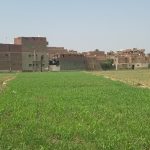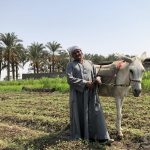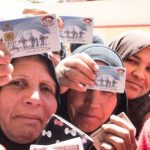This policy note showcases two examples on how remote sensing data can be used for monitoring agricultural production and economic activities
The Russia-Ukraine Crisis Poses a Serious Food Security Threat for Egypt
Russia's invasion of Ukraine has imperiled global food security—creating suffering within Ukraine and displacing millions, while disrupting agricultural production and trade from one of the world's major exporting regions.
NEW PUBLICATION: Investing in Dates, Poultry, Olive, and Medicinal and Aromatic Plants Value Chains in Egypt
This policy note summarizes an evaluation of public investment options for Egypt’s agri-food system conducted by the International Food Policy Research Institute in collaboration with the Ministry of Agriculture and Land Reclamation of the Government of Egypt and Cairo University
NEW PUBLICATION: Cluster-Based Development in Egypt: A Study of External Shocks to the Leather and Medicinal and Aromatic Plant Sectors
The Egyptian government has prioritized the idea of cluster-based development-that is, the geographic concentration of specialized firms, such as in this case, those producing similar or related products. The establishment of such clusters, however, presents significant challenges, bottlenecks, and obstacles
Cash Transfers and Women’s Decision-Making in Egypt: Still a Man’s World
Cash transfer programs have become one of the most popular ways to reduce poverty in low-income countries and have made substantial strides in doing so. Recently, attention has turned to the design of these programs, such as whether to target transfers explicitly to women, as well as their impacts beyond household spending
- « Previous Page
- 1
- …
- 3
- 4
- 5
- 6
- 7
- …
- 17
- Next Page »





